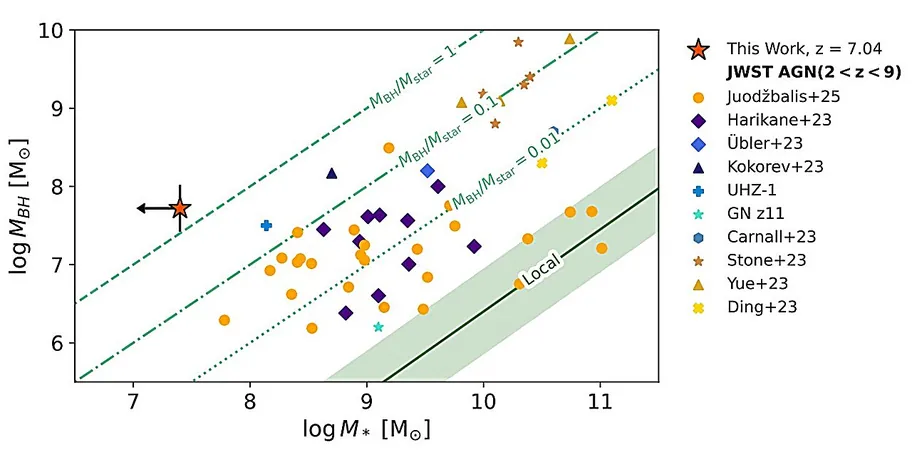
Unlocking the Secrets of Gene Regulation: The Power of Long Non-Coding RNA
2025-08-25
Author: Mei
A Groundbreaking Discovery in RNA Research
A revolutionary new study has unveiled the impressive role of long non-coding RNA (lncRNA) in gene regulation, challenging the long-held belief that these RNA molecules are merely byproducts of DNA. Published in *Nature Communications*, this research may change our understanding of gene expression forever.
Beyond 'Junk DNA': The Importance of lncRNA
For years, lncRNAs were dismissed as unimportant because they do not code for proteins. Scientists struggled to study these molecules, perceiving them as part of the 'junk' DNA category. However, according to Dr. Jhumku Kohtz, a research professor in the Ken and Ruth Davee Department of Neurology, this latest study flips that notion on its head. "When I began this work, long non-coding RNAs were considered non-functional products of ‘junk’ DNA," Kohtz stated.
The Role of Evf2 in Brain Development
The study focuses on Evf2, a specific lncRNA linked to gene expression and brain development. Researchers investigated its function during the development of mouse embryos, utilizing cutting-edge single-cell transcriptomics. Their findings reveal that Evf2 plays a crucial role in directing enhancers to key chromosomal sites that influence gene expression.
Revolutionizing Gene Regulation Understanding
The new insights into Evf2's role in gene regulation uncover a complex system that activates and represses genes crucial for brain function and seizure susceptibility. As Kohtz explained, this research addresses one of the fundamental questions in biology: how specific genes are selected for expression to form distinct cell types.
A Novel Chromosomal Organizational Principle?
This groundbreaking study indicates that Evf2 may reveal a new layer of genomic architecture. The research suggests that distinct RNA binding patterns across chromosomes could signify a new organizing principle that affects gene selection. This adds to the growing knowledge of how lncRNAs contribute to the biological complexity of gene regulation.
Future Directions in RNA Research
As Kohtz and her team look to the future, they aim to delve deeper into Evf2's impact on chromosomal organization and explore its functions within human brains. The study’s findings are not just academic; they could have significant implications for understanding brain function and could pave the way for breakthroughs in treating seizure-related disorders.
Research Backed by National Institutes of Health Funding
This research received generous support from National Institute of Mental Health grants, enabling a deeper exploration into this fascinating area of molecular biology.



 Brasil (PT)
Brasil (PT)
 Canada (EN)
Canada (EN)
 Chile (ES)
Chile (ES)
 Česko (CS)
Česko (CS)
 대한민국 (KO)
대한민국 (KO)
 España (ES)
España (ES)
 France (FR)
France (FR)
 Hong Kong (EN)
Hong Kong (EN)
 Italia (IT)
Italia (IT)
 日本 (JA)
日本 (JA)
 Magyarország (HU)
Magyarország (HU)
 Norge (NO)
Norge (NO)
 Polska (PL)
Polska (PL)
 Schweiz (DE)
Schweiz (DE)
 Singapore (EN)
Singapore (EN)
 Sverige (SV)
Sverige (SV)
 Suomi (FI)
Suomi (FI)
 Türkiye (TR)
Türkiye (TR)
 الإمارات العربية المتحدة (AR)
الإمارات العربية المتحدة (AR)